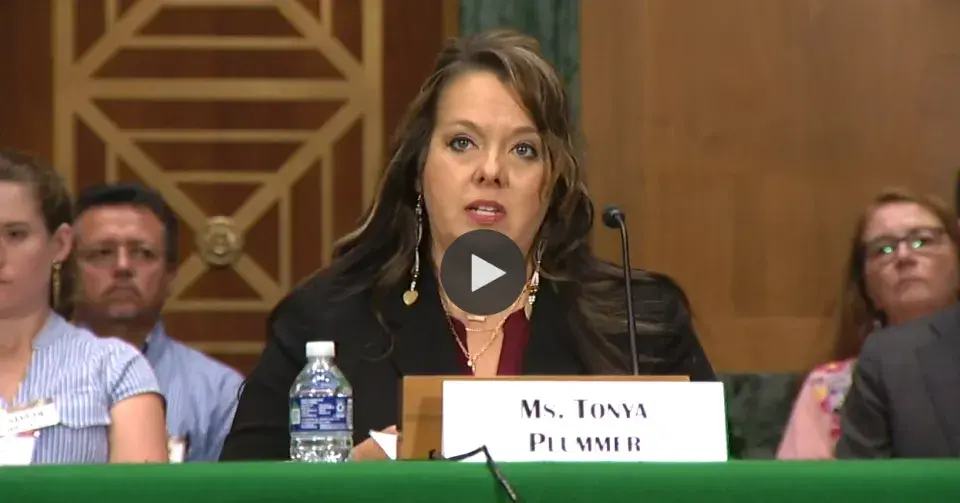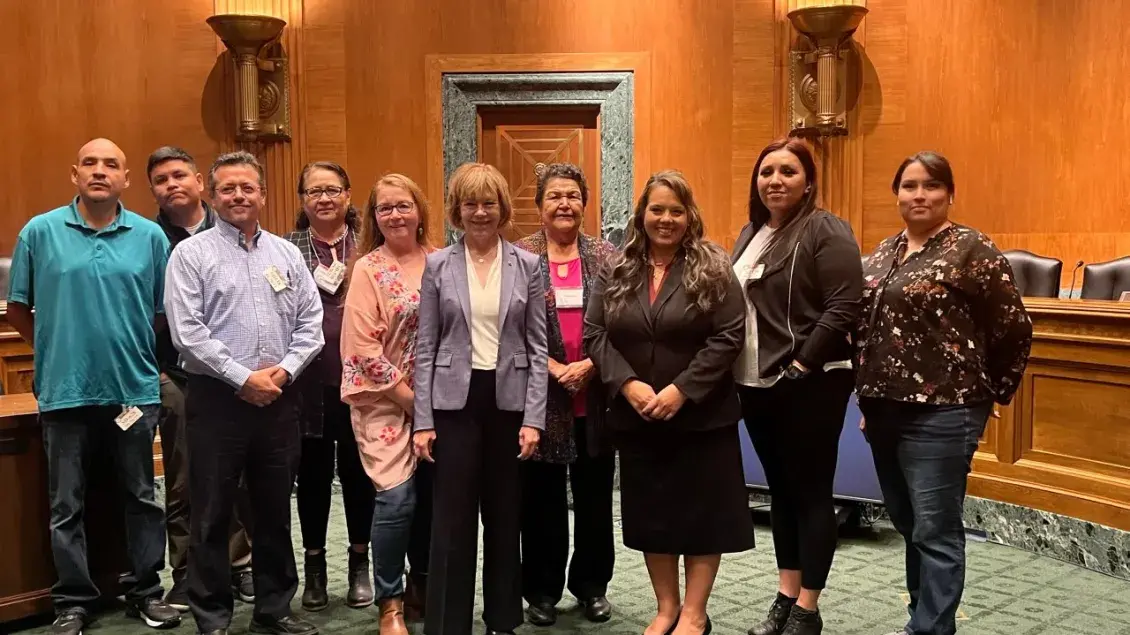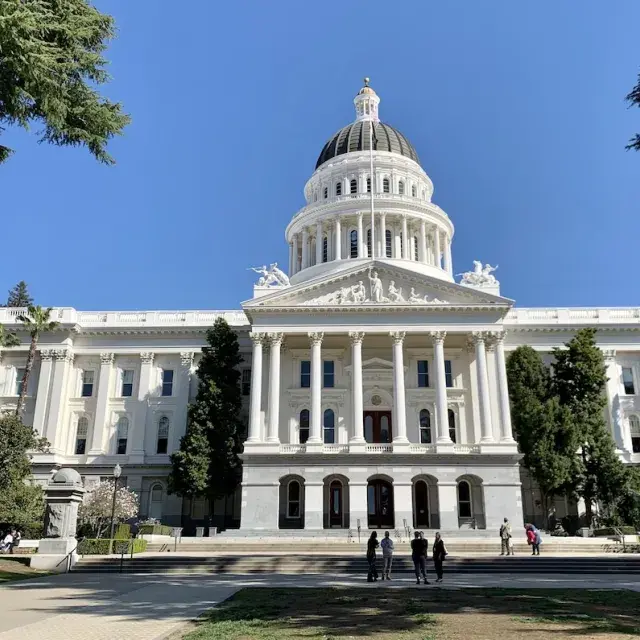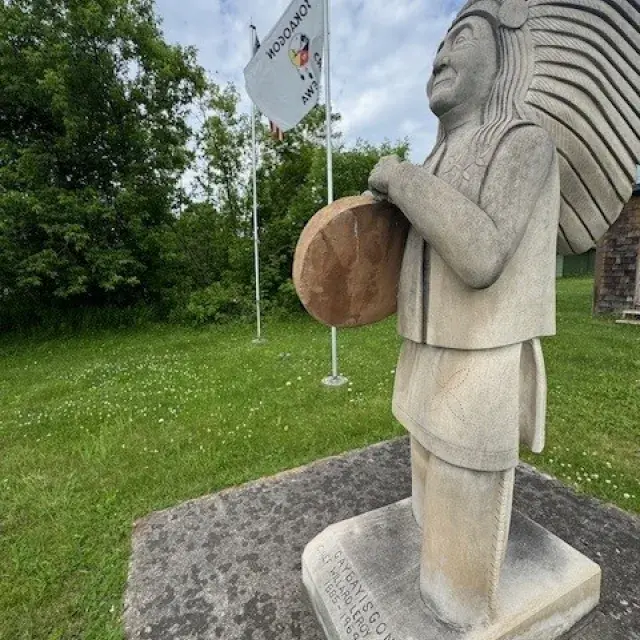While I just joined Enterprise a few weeks ago, I recently had the opportunity to appeal to the U.S. Senate to reform key
federal programs that support Native housing, in particular USDA’s Rural Housing Service.
I know how crucial these programs are because of my own family’s history.
My grandmother was born in a tipi on the banks of Enemy Swim near Sisseton, South Dakota. My grandfather was born in a tent on the Missouri River just outside Fort Belknap, Montana. Neither ever owned a home. Their son, my father, was born on the Fort Belknap Reservation and built his home on trust lands over several years with cash, going years without running water until he could afford that amenity.
I was 20 years old when the Native American Housing Assistance and Self-Determination Act (NAHASDA) was first authorized, and two years later I became the first homeowner in my family. I purchased my first home in Montana with a USDA rural housing loan. I have worked throughout my career helping others find a place to call home and have been disheartened at the lack of resources available for Indian Country.
In my testimony to the Senate Banking Committee’s Subcommittee on Housing, Transportation, and Community Development, I acknowledged the recent positive efforts of USDA Rural Housing Service staff to tackle the tough issues surrounding mortgage lending in Indian Country and to be present and available thought partners.
Read Tonya's full testimony here.

I also acknowledged the complexities of applying broad changes to all rural and tribal areas, where the markets, courts, rates of growth and ecosystems of support are varied. It is critically important to be cognizant of this in drafting legislation and careful of unintended consequences.
In my testimony, I touched on three proposed areas of reform needed to improve the accessibility and effectiveness of Rural Housing Service:
- Overall, I called for increased resources to Rural Housing Service programs. RHS programs are valuable but underutilized due to limited staff and technology and the disparity negatively impacts rural and Native American communities that rely on them as some of the best and only products designed for rural and Native needs. At Enterprise, we encourage creative solutions such as the national expansion of the Section 502 direct relending pilot in South Dakota that leans into Native community development financial institutions (CDFIs) as natural partners in the deployment of USDA funds and also the renewal of appropriations to the Section 525 Technical and Supervisory Assistance (TSA) grants.
- The USDA Section 502 subsidy recapture is damaging in Native communities and should never be applied on tribal trust lands. Tribal members on trust lands already come to the closing table with less equity because the land is given no value, and the application of a subsidy recapture assures they will not build it at a rate comparable to non-tribal members on fee simple lands where a buy/sell market exists. Recently, in one tribal community, a father with a 502 Direct loan passed away, and in order to stay, his family had to come up with $22,000 of subsidy recapture. However, broadly removing the recapture in communities where value appreciation is seen and a shared equity model makes sense could harm the USDA budget formulas and decrease dollars available for Section 502 lending. A nuanced approach is needed and the subsidy recapture should be treated one way on tribal land, one way in appreciating markets, and one way in depreciating markets.
- The proposed application of federal foreclosure proceedings currently available to HUD but not to USDA on Section 515 multifamily preservation projects should be carefully handled. While we appreciate the need to streamline recovery and ensure long-term affordability, we recognize the tribal courts and jurisdictions are sovereign and that tribal sovereignty must be recognized. There is fear and frustration around the way these processes play out on tribal lands, and we encourage further consultation with the National American Indian Housing Council, the policy committees of Native coalitions in Minnesota, South Dakota and Montana and others to determine viable solutions to expedite the process while respecting tribal sovereignty.
I was glad to be invited to share my experiences and perspectives. I appreciate the leadership of Senators Tina Smith and Mike Rounds, chair and ranking member of the subcommittee, on rural and tribal housing issues, as well as their bipartisan cooperation on issues that affect so many Americans in every corner of the country. We look forward to continuing our partnership with Congress to provide safe, stable housing for Native Americans and in rural communities.



